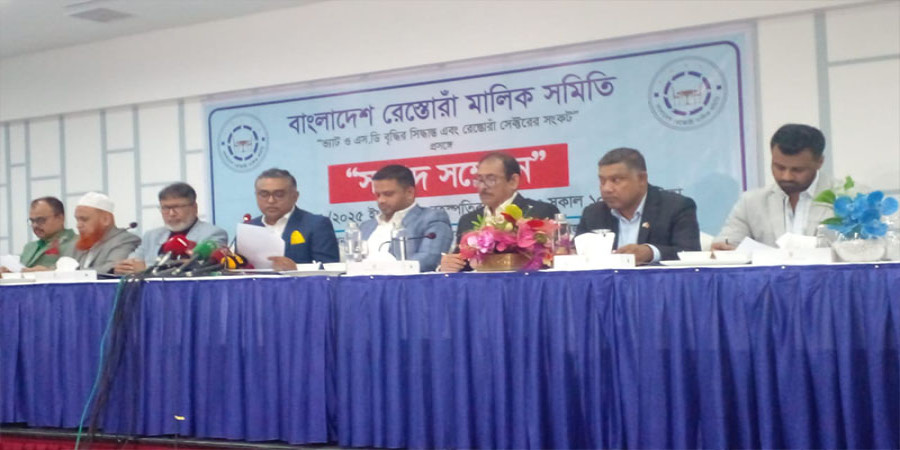
ছবি: Photo: Collected
The Bangladesh Restaurant Owners’ Association has claimed that 70% of restaurants in the country remain outside the VAT system, despite a growing push from the government to increase VAT rates. Speaking at a press conference held at a hotel in Dhaka on Thursday, January 9, the association's General Secretary, Imran Hassan, criticized the government's plan to increase VAT rates without ensuring full compliance from the sector.
According to Imran Hassan, there are approximately 482,000 restaurants in Bangladesh, but only 30% have VAT registrations. The association itself has around 60,000 members. He questioned the rationale behind raising VAT rates instead of bringing the remaining restaurants under the tax net. Hassan urged the government to reconsider its decision to increase VAT rates and warned that failing to do so might lead to an indefinite shutdown of restaurants across the country.
The National Board of Revenue (NBR) recently proposed increasing the VAT rate for restaurants. Currently, restaurants charge a 5% VAT for dining, but this rate could be raised to 15%. Additionally, the VAT rate for non-air-conditioned hotels may also double from 7.5% to 15%.
Imran Hassan argued that the government could bridge revenue gaps by eliminating unnecessary projects instead of burdening citizens with excessive taxes. He compared the situation to the policies of the East India Company, criticizing the government for imposing what he described as arbitrary taxes to meet conditions set by the International Monetary Fund (IMF).
He further explained that raising the VAT rate to 15%, along with an existing 10% supplementary duty, would effectively result in a 25% tax burden for consumers. While affluent areas like Gulshan and Banani may cope with such rates, it would be unrealistic for the general population. Hassan pointed out that no other country imposes such high taxes on food, making this move impractical and detrimental to both businesses and consumers.
During the press conference, Khondaker Ruhul Amin, an advisor to the association, emphasized that maintaining the VAT rate at 5% would ensure full revenue collection. He stated that increasing the rate might encourage evasion rather than compliance, ultimately defeating the purpose of the hike.
On the other hand, Dr. Md. Abdur Rouf, Member (VAT Implementation) of the NBR, acknowledged the challenges in increasing VAT registration across the country. He expressed frustration that, in a population of 180 million, there are only 544,000 VAT-registered entities. He reiterated that VAT is a self-assessed tax system and that eligible businesses should voluntarily register online, a process the NBR has made free of charge. However, many businesses remain reluctant to register, forcing the NBR to conduct surveys and issue forced registrations.
Dr. Rouf called on the restaurant owners’ association to support the NBR in ensuring that all restaurants comply with VAT requirements. He expressed hope that cooperation between the two parties would lead to higher compliance rates and an expanded tax base.
The NBR defended its proposal to raise VAT rates by stating that the increase would not affect essential goods or services and would have minimal impact on inflation. The board maintained that the policy aims to increase domestic revenue collection, achieve sustainable development goals (SDGs), and enhance self-reliance as a nation.
Despite these assurances, the restaurant owners remain firm in their stance, urging the government to prioritize compliance over rate hikes. They argue that an inclusive approach, focusing on bringing more businesses into the tax system, would be more effective in boosting revenue without overburdening consumers or businesses.
repoter






